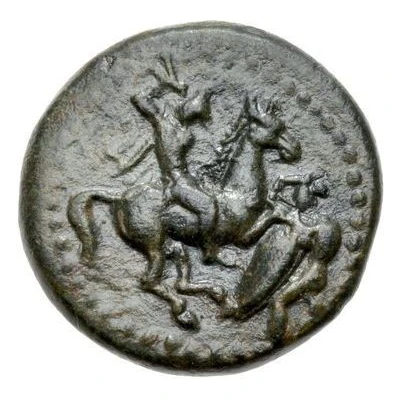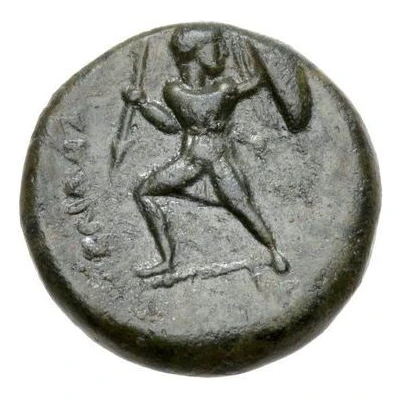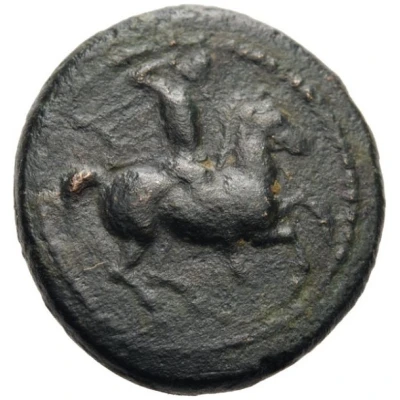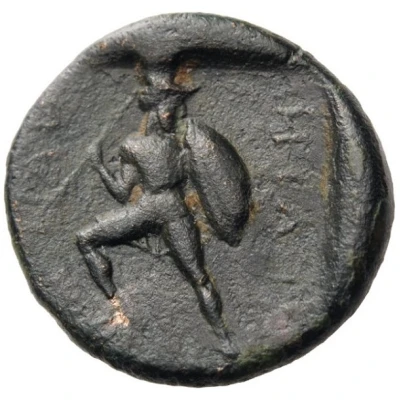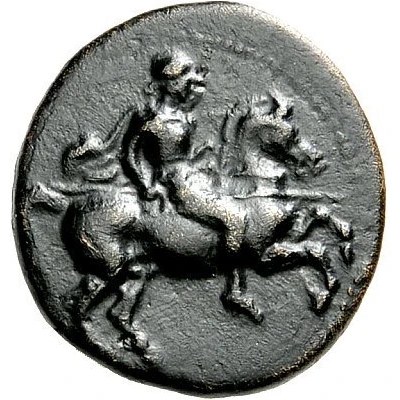
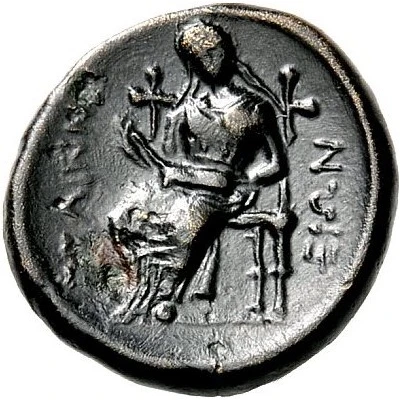

© Nomos AG
Chalkon 325 BC - 275 BC
| Bronze | 2.2 g | 15 mm |
| Issuer | Pelinna (Thessaly) |
|---|---|
| Type | Standard circulation coin |
| Years | 325 BC - 275 BC |
| Value | Chalkon (1⁄48) |
| Currency | Drachm |
| Composition | Bronze |
| Weight | 2.2 g |
| Diameter | 15 mm |
| Shape | Round (irregular) |
| Technique | Hammered |
| Demonetized | Yes |
| Updated | 2024-10-10 |
| Numista | N#170884 |
|---|---|
| Rarity index | 100% |
Reverse
Mantho seated facing on throne with high back, her body turned slightly to left, holding open box in her lap.
Script: Greek
Lettering: ΠΕΛΙΝΝΑΙΕΩΝ
Translation: The Pelinnaeians
Interesting fact
The Chalkon coin was used as a form of currency in ancient Greece during the Hellenistic period, specifically in the city of Pelinna in Thessaly. The coin's design features the image of a chalkos, which is a mythical creature that is half-horse, half-griffin. This unique design was meant to symbolize the city's connection to the mythical creature and its association with the goddess Athena, who was often depicted with a chalkos. The coin's bronze material and 2.2g weight also made it a practical and durable form of currency for everyday transactions.
